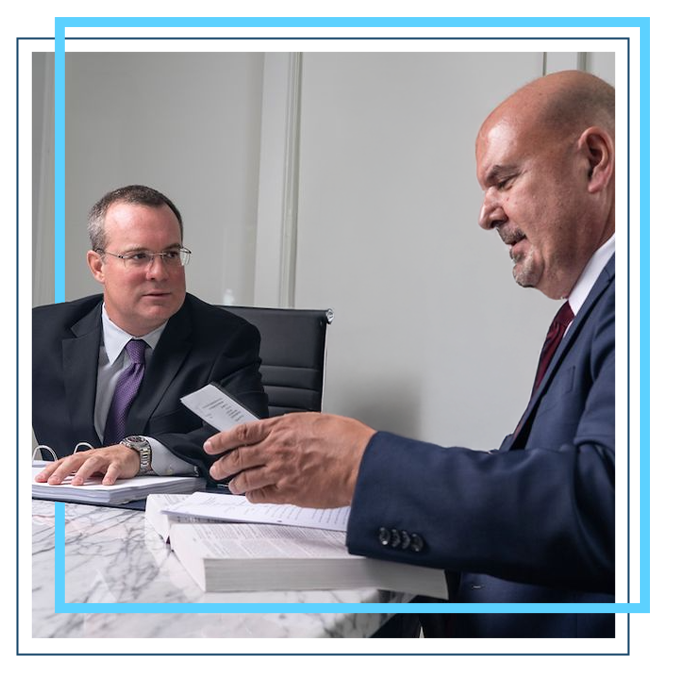
Miami Child Pornography Attorneys
Challenging Possession, Distribution, and Production of Child Pornography Charges in Florida
Have you been accused of child pornography? If so, it is critical that you retain aggressive and thorough criminal defense counsel to counter these allegations and protect your reputation, rights, and freedom.
At Beckham Law Firm, our accomplished, award-winning legal team has well over half a century of legal experience defending the rights of the accused. Our Miami child pornography defense lawyers are prepared to thoughtfully consider every viable strategy and pursue the best outcome possible in your case.
Whether your child pornography charges are on the state or federal level, our team can help. Call (786) 244-8010 or contact us online to schedule a free, confidential consultation today.


-
Battery Case Dismissed
Battery on a Elderly Person - At 5:59 PM, law enforcement was dispatched in reference to domestic battery between husband, wife and daughter. Upon arrival, the officer made contact with victim 1 who was in distress and crying. Victim 1 stated that the Defendant became upset while at home and that the Defendant started to break things around the house then pulled her hair while he would break her face to put up a right fist. Victim 1 stated that she has been living in fear since she married the Defendant.
-
Multiple Charges Case Dismissed
Aggravated Assault w/ Deadly Weapon, Domestic Violence, and Child Abuse - At 4:28 PM, officer was dispatched in reference to a domestic disturbance between a father and son. Upon arrival, the officer made contact with the Defendant who stated he had a physical altercation with his father. The Defendant stated that he arrived to the residency where he lives with his mother and father; and then a verbal argument ensued with his father which led them to confronting each other in the backyard of the residence.
-
2nd Degree Murder – Case Dismissed
At 7:43 PM, the Defendant who was a Miami-Dade Public Transit employee surrendered at the Miami-Dade Police Department. The Defendant and the victim engaged in a heated verbal dispute over which exit door the victim was supposed to utilize. The victim was belligerent and yelled obscene remarks to the Defendant who remained on the driver’s seat.
-
Felony Case Dismissed
Felony Drug Possession - At 3:47 AM, law enforcement officer observed the Defendant sitting on the bus stop past curfew. The officer conducted a subject check to find the reasons the Defendant was stationary at the location. The Defendant stated that he was playing a game that required him to be seated. The officer then conducted a pat down and a sharp pointy object was discovered in the Defendant’s left pocket.
-
Multiple Charges Case Dismissed
Grand Theft, Domestic Violence, and Aggravated Battery - At 11:30 AM, law enforcement was dispatched in emergency mode in reference to a domestic battery. The officer made contact with the Defendant who stated that he and the victim got into a verbal argument. The victim decided to leave with the child. The victim stated that the Defendant began to argue with her reference to her being pregnant.
-
Robbery Case Dismissed
Strong Arm Robbery - At 11:44 PM, law enforcement was called to respond to a possible suspect of robbery and battery. The Defendant had been observed by the victim earlier this day as the Defendant approached the victim while she was eating and having drinks with some friends. The Defendant told the victim she needed to leave the location and if not he would take her phone. The victim then told the Defendant she will not leave the place and he became enraged.

Penalties for Child Pornography Convictions in Florida
A conviction for possession of child pornography can result in a prison sentence of up to 5 years per count, alongside hefty fines that can reach up to $5,000 per count. If the material involves a particularly young child or is considered especially egregious, the penalties may be harsher.
Distribution or transmission of child pornography is treated with even greater severity. This offense is often classified as a second-degree felony, punishable by up to 15 years in prison per count and fines up to $10,000. Again, the use of any electronic means to distribute child pornography can elevate the gravity of the charges.
Production of child pornography is among the most serious offenses, typically classified as a first-degree felony. A conviction for producing child pornography can lead to a prison sentence of up to 30 years per count, and fines may soar up to $15,000. Furthermore, offenders may face mandatory minimum sentences, particularly if the crime involves a minor below a certain age.
Additionally, beyond incarceration and financial penalties, convicted individuals are required to register as sex offenders. Sex offender registration comes with numerous restrictions that can significantly impact an individual’s personal and professional life.
Your defense can’t wait. Speak to our Miami child pornography attorneys today by calling (786) 244-8010 or contacting us online.


-
“I worked with Beckham Law Firm for two years. Their experience, expertise, and support helped me make the best decision to save my life. I was facing serious time, but it was all adjudicated. They got me out of the worst time of my life. Thanks!”- J.D.
-
“By far the best law firm! Very friendly and knowledgeable attorneys with vast experience in DUI and criminal cases. The staff is amazing and always available for any concerns. Highly recommend Beckham Law Firm!”- Melody A.
-
“Mr. Beckham is real, trustworthy, and more importantly knowledgeable. This was my first experience dealing with an attorney and I’m truly thankful I chose him and for all the help him and his associates provided me with.”- Ethan M.
-
“Few years back I ran into some legal trouble and was recommended to Beckham Law by a friend. I had never had to deal with any of this so, it was quite terrifying, to be honest. I walked into his office a nervous wreck, walked out confident and taken care of. Great service. Answers all calls whenever you need help and advice; they made a difficult situation better. I greatly recommend this firm!”- Carlens E.
-
“Mr. Beckham and his team were EXCELLENT! They were professional and informative. They walked me through the process and answered all my questions and concerns! And they advised me well! I Highly recommend them!”- Nelson F.
-
“I'm so happy I found these lawyers on the Internet. I was very nervous and scared when I walked into the office, thinking a bad outcome could change my life drastically. They were able to get my case dismissed! I highly recommend Beckham Law Firm to my family and friends. Thanks for everything!”- Leonel D.
-
“They took great care of me, kept me informed and made me feel secure with the process, as it was my first time having to hire an attorney. 100% satisfied with my experience”- Marvin O.
-
“The Beckham Law Firm has been a tremendous help with my case. I cannot thank their team enough for the time, attention, and understanding with my case. Forever grateful for their help with case. Truly a phenomenal team!”- Shannon F.
-
“The staff at Beckham Law did an amazing job handling my case. They went above and beyond with closing everything in a timely manner. They were very reasonable with pricing and very flexible with payment. Barbara was very helpful answering any questions or concerns that I had. I highly recommend these law professionals to handle any legal matters you may need resolved.”- Joel D.



Why partner with Beckham Law Firm?
-
Strong Community
RootsOur strong relationships with local judges, attorneys, and law enforcement empower us to facilitate favorable resolutions for clients in even the most complex criminal cases. -
Comprehensive
KnowledgeWe know Criminal Law. With years of former prosecution experience and a longstanding reputation for achieving favorable outcomes for our clients, you can trust us to employ a strategic defense strategy for your unique case. -
Time-Tested Trial ExperienceOur attorneys are highly skilled litigators, empowering us to represent your best interests at every stage of the criminal process. From initial arraignment hearings to pre-trial motions to criminal litigation, we can provide a formidable defense in and out of the courtroom.
-
Proven Track Record of ResultsWith over 10,000 cases handled and over a 90% success rate, put decades of experience in your corner with Beckham Law Firm. We can diligently protect your rights from start to finish.










